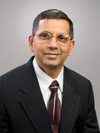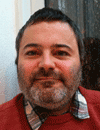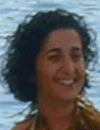Co-Located Conference AgendasADME and Predictive Toxicology | Nanomedicine 2013 | 

Thursday, 11 April 201308:00 | Registration | |
Connectivity between Traditional and Nanomedicine & Nanomedicine Approaches in Molecular Imaging |
| | 09:30 |  | Keynote Presentation Through Green Nanotechnology: A Bridge Connecting Indian Traditional Medicine with Western Medicines
Kattesh V. Katti, Director, Institute of Green Nanotechnology / Radiology / Cancer Nanotechnology Platform, University of Missouri, United States of America
This presentation will highlight our pioneering efforts in Green Nanotechnology which uses phytochemicals from herbs and fruits for the development of a myriad of biocompatible gold nanoparticles. We will discuss recent findings on therapeutic efficacy of gold nanoparticles in treating solid tumours including hormone refractory prostate cancer. We will also provide an overall rationale on how Green Nanotechnology connects Western medicine with the Indian traditional medicine which has been in practice for over five thousand years. |
| 10:30 | Coffee and Networking in Exhibiton Hall | |
Toxicology Considerations in the Design and Development of Nanomedicine Formulation & Green Nanotechnology in Drug Discovery |
| | 11:15 |  | Keynote Presentation Nanotoxicology: Safety Assessment of Engineered Nanomaterials
Gunter Oberdorster, Professor, University of Rochester, United States of America
A practical approach will be discussed to correlate results of in vitro and in vivo studies and – importantly – emphasize the need of obtaining in vivo exposure data so that risk can be assessed once experimental Exposure–Dose–Response relationships in rodents are available. |
| 12:15 | Lunch and Networking in Exhibition Hall | 13:30 | Poster Viewing Session | 14:15 | On the Impact of Surface Hydrophobicity on the Toxicity of Inhaled Soft, Organic Nanomaterial
Marie-Christine Jones, Lecturer, University of Birmingham, United Kingdom
This presentation will explore the role of surface hydrophobicity as a driving force behind the toxicity of inhaled organic nanomaterials. Specifically, this study aimed to verify the premise that adverse reactions in the lung can be reduced through a decrease in surface hydrophobicity. | |
Regulatory Aspects Towards Approval of Nanomedicine Drugs |
| | 14:45 | Silver Nanocomposites for Biomedical Applications
Meenal Kowshick, Assistant Professor, Birla Institute of Technology & Science Pilani, India
Silver is a powerful antimicrobial and anti-inflammmatory agent that exhibits strong cytotoxicity towards an array of microorganisms and a remarkably low human toxicity. With the rapid emergence of multi-drug resistant microorganisms, the use of silver based antimicrobials is re-emerging as an effective non-resistance-inducing strategy to prevent recurrence of infections. Our work on biomedical applications of silver composites with chitin, hydroxyapatite, titanium dioxide, etc will be presented. | 15:15 | Coffee and Networking in Exhibiton Hall | |
Nanoparticles and Nanomaterials in Therapy |
| | 16:00 | Tumour Regression After Intravenous Administration of Novel Tumour-targeted Nanomedicines
Christine Dufes, Senior Lecturer, University of Strathclyde, United Kingdom
The possibility of using genes as medicines to treat cancer is limited by the lack of efficacious delivery systems able to selectively deliver genes to tumours. We demonstrated that the intravenous administration of a tumour-targeted dendriplex led to tumour disappearance of 90% of the tested tumours over one month. | 16:30 | Nanoparticle Formation Using Advanced Focused Acoustics
Carl Beckett, General Manager, Covaris Process Technologies, United States of America
In this presentation we will discuss the use of Focused Acoustics for the processing of key nanoparticle delivery systems, including liposomes, emulsions, and nanosuspensions. Key limitations of current methods will be addressed, including temperature and solvent sensitive APIs, scalability, and sterile, continuous flow manufacturing capabilities. Example data is provided to show that the method or process by which a Formulation is formed, has a direct impact on the effectiveness of the Formulation. Both small molecule and biological Formulations will be discussed. | 17:00 | CANCELLED - Amphoteric Polyamidoamines of Nanomedical Interest
Paolo Ferruti, Professor, Universita di Milano, Italy
Poly(amidoamine)s (PAAs) are biodegradable tert-amine polymers obtained by polyaddition of amines to bisacrylamides. Recently, it has been found that some highly biocompatible amphoteric PAAs are endowed with strong antiviral activity and, in addition, give non-covalent adducts with primaquine and chloroquine whose antimalarial activity is dramatically higher than that of the free drugs. | 17:30 | End of Day One |
Friday, 12 April 2013 |
Nanoparticles and Nanomaterials in Therapy Cont'd |
| | 09:00 |  | Keynote Presentation Lipid Nanocapsules for the Oral Delivery of Fragile or Poorly Soluble Compounds
Frederic Lagarce, Professor, University of Angers, France
Oral delivery is the first choice route of administration that allow a good compliance, safety and ambulatory therapy. Unfortunately the bioavailability of poorly soluble or fragile compounds is not good after oral administration. Lipid Nanocapsules (LNCs) while protecting the drug and enhancing its permeability across epithelial digestive barrier can be a solution to allow oral administration of first line therapies such as paclitaxel (lung and breast cancer) or fondaparinux (anticoagulant). The devellopement and characterisation of LNCs and their mechanisms of uptake across the intestinal barriers will be presented. |
| 10:00 | The Janus Face of Nanotechnology
Seamus Higson, Professor/Head, Cranfield University, United Kingdom
Nanotechnology is a dramatically expanding new area of science. Nano-materials are often customised for a particular application. This diversity of form and chemical nature poses problems in terms of risk assessment. This talk will aim to explain our current scientific understanding about the potential harmful effects of these ubiquitous materials. | 10:30 | Coffee and Networking in Exhibiton Hall | 11:15 | Cell Mediated Nanoencapsulated (CMN) Drug Delivery into Deep Lungs
Arun Kumar, Assistant Professor, University of Delaware, United States of America
To overcome drug delivery limitations we developed a SNAP (Sertoli cells nanoparticle mediated protocol). In this protocol we isolated rat Sertoli cells and preloaded with chitosan nanoparticles and used to obtain a high-density distribution and concentration (~ 90%) of the drug nanoparticles in the deep lungs of mice. This delivery protocol can be optimized for drug therapy of most complicated disease of the lungs. | 11:45 | Cationic Nanoparticles for Cancer Chemotherapy
Erem Bilensoy, Associate Professor, Hacettepe University, Turkey
Nanoparticles are promising delivery systems for the local or systemic application of anticancer drugs and active molecules with bioavailability problems. As a result of their favourable size distribution, nanoparticles can be targeted to tumor tissues via the Enhanced Permeation and Retention (EPR) Effect. In this sense, active targeting of anticancer drugs may also be achieved by surface modification of the nanoparticles. Positive surface charge affects the intracellular drug delivery and cellular uptake of nanoparticles due to improved interaction with biological membranes. Potential of cationic nanoparticles will be discussed in view of in vitro, cell culture and in vivo data. | 12:15 | Lunch and Networking in Exhibition Hall | 13:30 | Poster Viewing Session | |
Novel Synthetic Approaches in Nanomedicine |
| | 14:15 |  | Keynote Presentation CANCELLED - Osteoarticular Regenerative NanoMedicine
Nadia Benkirane-Jessel, Research Director, French National Institute of Health and Medical Research (INSERM), France
Recently, we have reported a "Smart Hybrid Materials Equipped by Nanoreservoirs of Therapeutics". This unique nanotechnology strategy is used to entrap, protect, and stabilize therapeutic agents into polymer coatings acting as nanoreservoirs enrobing nanofibers of implantable membranes. Upon contact with cells, therapeutic agents become available through enzymatic degradation of the nanoreservoirs. As cells grow, divide, and infiltrate deeper into the porous membrane, they trigger slow and progressive release of therapeutic agents that, in turn, stimulate further cell proliferation. This constitutes the first instance of a smart living nanostructured hybrid membrane for regenerative medicine. The cell contact-dependent bioerodable nanoreservoirs described here will permit sustained release of drugs, genes, growth factors, etc., opening a general route to the design of sophisticated cell-therapy implants capable of robust and durable regeneration of a broad variety of tissues. |
| 15:15 | Coffee and Networking in Exhibiton Hall | 15:45 | Polymeric Nanoparticles for Oral Chemotherapy
Maite Agueros Bazo, Postdoc Researcher, University of Navarra, Spain
The presentation will try to show the abilities of poly(anhydride) nanoparticles to improve the oral bioavailability of anticancer drugs with poor permeability properties due to a presystemic metabolism (i.e paclitaxel). The resulting nanoparticles may be of interest to develop oral metronomic therapies. | 16:15 | CANCELLED - Micelle-encapsulated Thiostrepton is an Effective Nanomedicine for Inhibiting Tumor Growth
Andrei Gartel, Associate Professor, University of Illinois at Chicago, United States of America
We explored the potential in vivo anticancer properties of thiostrepton, delivered through nanoparticle encapsulation to xenograft models of breast and liver cancer. Maximum accumulation of micelle-thiostrepton nanoparticles (100nm in diameter, -16mV in zetapotential) into tumors was retained for at least 24 hours and reduced tumor growth of human cancer xenografts. | 16:45 | Close of Conference |
|


 Add to Calendar ▼2013-04-11 00:00:002013-04-12 00:00:00Europe/LondonNanomedicine 2013Nanomedicine 2013 in Barcelona, SpainBarcelona, SpainSELECTBIOenquiries@selectbiosciences.com
Add to Calendar ▼2013-04-11 00:00:002013-04-12 00:00:00Europe/LondonNanomedicine 2013Nanomedicine 2013 in Barcelona, SpainBarcelona, SpainSELECTBIOenquiries@selectbiosciences.com